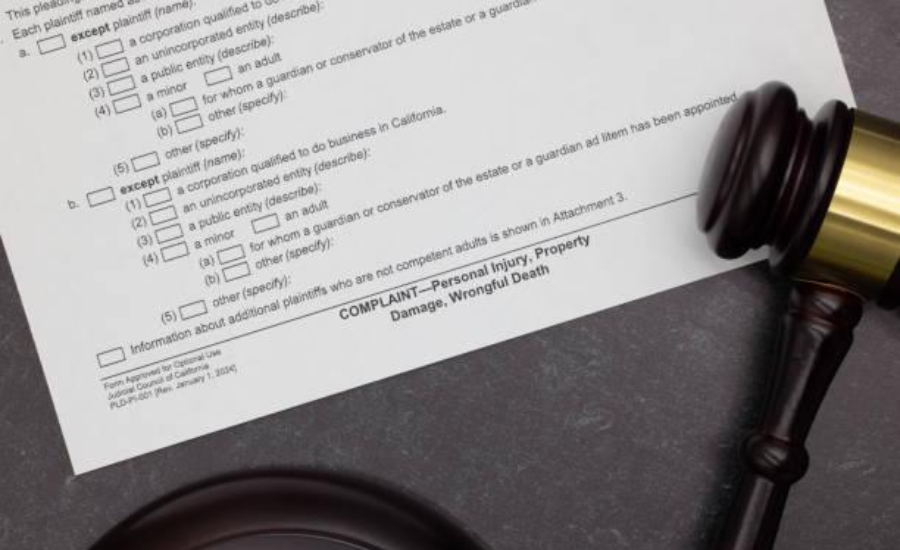Resources for Injury Cases: A Guide to Your Rights
Navigating the legal landscape after an injury can be overwhelming. Whether it’s a car accident, a slip and fall, or any other kind of personal injury, knowing where to turn for help can make a world of difference. Fortunately, there are numerous resources for injury cases designed to guide you through this difficult time and protect your rights. we’ll dive into those resources, explain your rights as an injury victim, and answer some of the most frequently asked questions.
Understanding Your Rights in Injury Cases
When you’re injured due to someone else’s negligence, you have legal rights. Understanding these rights is crucial to ensure you get the compensation and support you deserve. You have the right to:
Seek medical care: After an injury, your priority should be your health. Whether it’s an emergency room visit or long-term care, you are entitled to medical treatment.
File a compensation claim: If your injury was caused by someone else’s negligence or a defective product, you can seek compensation for medical bills, lost wages, pain and suffering, and other damages.
Hire legal representation: You have the right to work with a personal injury attorney to help you navigate the legal process and negotiate with insurance companies.
Access legal resources: There are a variety of resources for injury cases that can help you understand your rights, gather evidence, and build a strong case.
Key Resources for Injury Cases
Whether you’re seeking compensation or looking for guidance, these essential resources for injury cases can help you manage the legal process more effectively:
1. Personal Injury Attorneys
One of the most important resources you can access is a personal injury attorney. An experienced attorney will not only guide you through the legal process but also help gather the necessary evidence and negotiate with insurance companies on your behalf. Many injury lawyers offer free consultations, so it’s worth seeking advice even if you’re unsure whether you need legal representation.
2. Medical Professionals
Your medical records play a crucial role in your injury case. Seeking treatment immediately after an injury and following up with specialists will not only help your recovery but also document the extent of your injuries. This documentation can be used to support your compensation claim. Don’t delay in seeking medical care, as any gap in treatment can weaken your case.
3. Online Legal Resources
There are many online platforms where you can educate yourself on personal injury law. Websites like FindLaw, Nolo, and the American Bar Association offer free articles and guides to help you understand the complexities of injury cases. These platforms also offer directories where you can find lawyers who specialize in personal injury cases.
4. Insurance Claims Resources
If you’re dealing with an insurance company after an injury, it’s essential to understand your policy and the claims process. Many insurance companies provide online resources where you can track your claim, communicate with representatives, and find answers to your questions. You may also want to consult a lawyer before speaking to insurance adjusters to avoid compromising your case.
5. State and Local Legal Aid
If you’re unable to afford legal representation, many states offer legal aid services to injury victims. These services can connect you with pro bono lawyers or provide advice on how to proceed with your claim. Legal aid organizations can be particularly helpful in cases where you’re unsure how to represent yourself.
6. Support Groups and Rehabilitation Centers
Injury cases often involve physical and emotional recovery, and connecting with support groups or rehabilitation centers can be invaluable. These resources provide not only physical therapy and counseling but also emotional support from others who have gone through similar experiences. Such resources can improve your quality of life while helping you gather evidence of the long-term impact of your injuries.
How to Protect Your Rights in an Injury Case
Even with access to all these resources, it’s essential to take proactive steps to protect your rights in an injury case:
Document Everything: Keep a detailed record of your medical treatments, any communication with insurance companies, and all receipts related to your injury. This documentation can be crucial for proving your case.
Avoid Social Media: It’s tempting to post updates about your recovery, but anything you share on social media can potentially be used against you. Avoid discussing your injury or the details of your case online.
Consult an Attorney Early: Even if you’re unsure whether you need a lawyer, it’s a good idea to consult with one early on. An attorney can help you avoid common mistakes that could jeopardize your case.
FAQs about Resources for Injury Cases
Q1. Do I need a lawyer for my injury case?
While it’s possible to handle a minor injury case without a lawyer, it’s often a good idea to consult one. A personal injury lawyer can navigate complex legal issues, deal with insurance companies, and help you get the compensation you deserve.
Q2. What should I do immediately after an injury?
The first thing you should do is seek medical attention. Once your immediate health needs are addressed, document everything you can about the incident, including photos, witness statements, and any expenses related to the injury.
Q3. Can I afford legal help if I don’t have the money upfront?
Most personal injury lawyers work on a contingency fee basis, which means they don’t get paid unless you win your case. This makes it easier for injury victims to access legal representation without paying upfront fees.
Q4. How long do I have to file an injury claim?
The statute of limitations for injury cases varies by state, but it’s usually between one and three years. It’s crucial to file your claim as soon as possible to ensure you don’t miss any deadlines.
Q5. Can I still file a claim if the accident was partly my fault?
In many states, you can still seek compensation even if you were partly at fault for the accident. The amount of compensation you receive will be reduced by your percentage of fault, but you won’t be barred from recovering damages entirely.
Conclusion
Understanding and utilizing the resources for injury cases is essential to protect your rights and ensure you get the compensation and support you deserve. Whether you’re seeking legal representation, medical care, or educational materials, these resources can help you navigate the aftermath of an injury with confidence.
If you’ve been injured due to someone else’s negligence, don’t hesitate to explore the many resources available to you. From finding the right personal injury lawyer to understanding the claims process, you have the power to protect your rights and secure a fair outcome.
Take the time to educate yourself, consult professionals, and gather the necessary evidence to strengthen your case. With the right resources at your disposal, you’ll be well-equipped to handle any challenges that come your way.
Stay In Touch For More Updates And Alerts: The Mail






